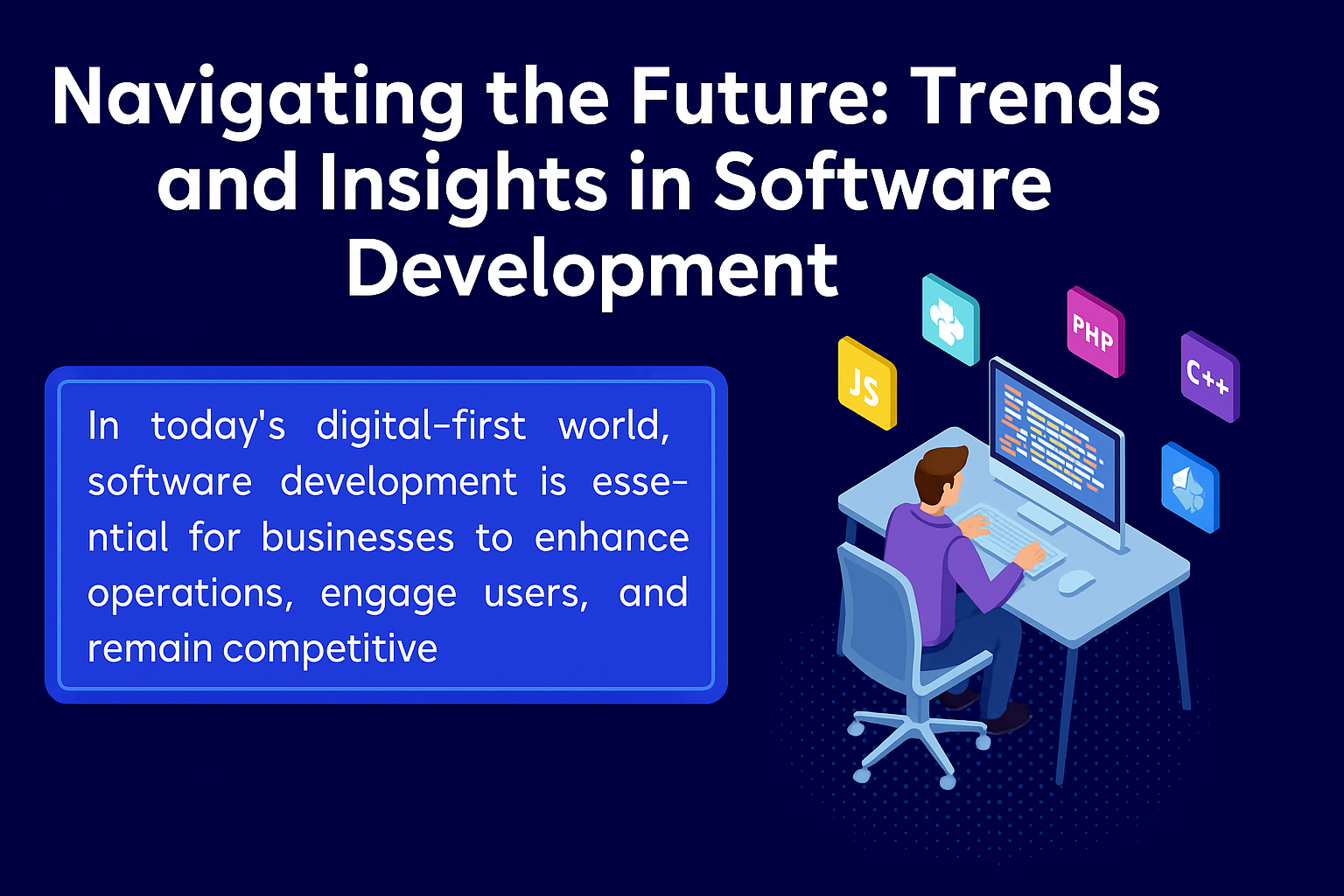The Future of Mobile Development: Why Choose Flutter?
The development of mobile apps is driving technological innovations in an always-changing digital terrain. Frameworks that support cross-platform development have become more well-known as companies try to reach their customers on several channels. Of these, Flutter stands as a strong competitor. This blog looks at mobile development’s future and why Flutter might be the best option available to companies and developers.
Introduction to Flutter in Mobile Development
Overview of Mobile Development Evolution
Since the release of cell phones, mobile development has advanced greatly. Apps first were created natively for particular platforms, including iOS or Android. Though efficient, this method required time and resources. Hybrid and cross-platform solutions emerged as developers looked for ways to simplify the process as the demand for mobile apps expanded.
Rise of Cross-Platform Development Solutions
By allowing developers to write code once and apply it across several platforms, cross-platform development greatly lowers development time and expenses. React Native and Xamarin’s frameworks helped to shape this movement. With its special qualities and capabilities, Flutter—introduced by Google—has pushed cross-platform development to unprecedented heights.
What is Flutter?
Google built an open-source UI tool development kit called Flutter. From a single codebase, it lets developers create natively produced apps for desktop, web, and mobile. This architecture takes advantage of Google’s developed programming language, Dart, which provides tools fit for contemporary app development.
Key Features and Components of Flutter
The architecture of Flutter is centered on several fundamental elements:
- Widgets: Everything in Flutter is a widget, from buttons to padding. This allows for a highly customizable and responsive UI.
- Hot Reload: This feature enables developers to see changes in real time without restarting the app, enhancing productivity.
- Rich Set of Libraries: Flutter comes with a comprehensive library of pre-designed widgets that adhere to both Material Design (for Android) and Cupertino (for iOS).
Flutter vs. Other Frameworks (React Native, Xamarin, Swift)
Flutter is notable for performance and adaptability when weighed against other frameworks. Unlike React Native, which depends on native components, Flutter makes use of its own rendering engine, therefore enabling uniform UI across platforms. Though strong, Xamarin can result in bigger app sizes. Conversely, Swift is less flexible for cross-platform needs since it only addresses iOS development.
Advantages of Using Flutter for Mobile Development
Flutter offers numerous advantages that make it an attractive choice for Flutter mobile app development.
Unified Codebase for iOS and Android
The ability of Flutter to produce a single codebase for both iOS and Android apps is among its most important advantages. In addition to saving time, this guarantees that features and tools stay constant across platforms.
Fast and Seamless User Interface Design
With Flutter’s widget-based design, developers may easily construct aesthetically pleasing and responsive user interfaces. The great array of customizable widgets allows apps to be fit for the brand identity and user experience criteria without much work.
Native Performance with Dart Language
Compiling to native code, Dart, the programming language used by Flutter guarantees good performance comparable to native apps. When weighed against frameworks depending on a JavaScript bridge, which can compromise performance, this is a clear benefit.
Time and Cost Efficiency for Developers and Businesses
Flutter helps companies minimize development expenses by allowing fast development and lowering the need for platform-specific coding. Maintaining a single codebase also guarantees more effective implementation of upgrades and bug fixes.
Future Trends in Mobile Development with Flutter
For Flutter, the future seems bright since more companies and developers see its possibilities.
Adoption of Flutter by Large Enterprises and Startups
For their mobile apps, many big companies including Alibaba, Google Ads, and eBay have embraced Flutter. Startups striving to maximize user engagement and performance while minimizing costs also exhibit this tendency.
AI and Machine Learning Integration in Flutter Apps
Flutter is positioned to help these technologies be included in mobile apps as artificial intelligence and machine learning keep changing the IT scene. Machine learning models may be readily included in the framework, enabling creators of intelligent apps with individualized experiences.
Flutter’s Role in Expanding IoT (Internet of Things) Capabilities
With the rise of IoT, Flutter can be a vital player in developing applications that interact with connected devices. Its ability to run on various platforms makes it an excellent choice for creating applications that control or monitor IoT devices.
Challenges of Using Flutter in Mobile Development
Despite its many advantages, Flutter is not without challenges.
Limitations and Constraints of Flutter’s Current Framework
While Flutter has a rich set of widgets, it may not always have the extensive libraries that other frameworks offer. Certain platform-specific features might require additional workarounds or native code integration.
Common Issues Developers Face and How to Overcome Them
Developers may encounter challenges such as:
- Limited Third-Party Libraries: While growing, the library ecosystem is not as mature as those of older frameworks. Developers can mitigate this by creating custom plugins or contributing to the Flutter community.
- Performance on Older Devices: Although Flutter is optimized for performance, older devices may struggle with resource-intensive apps. Developers should consider performance testing on various devices to ensure smooth experiences.
Conclusion
By offering a strong framework that streamlines the app-building process and delivers excellent performance and an outstanding user experience, Flutter is changing the scene of mobile development. Its capacity to unite codebases for several platforms, together with the benefits of quick UI creation and native performance, make it an interesting option for companies and developers.Use the knowledge of the Best Flutter app developers in India to improve your mobile apps. Adopting Flutter will help you to lead in efficiency and creativity in the development of mobile apps. Selecting the top Flutter app developers in India can help you reach your objectives regardless of whether you are a business trying to simplify your development procedures or a startup ready for rapid launch. Don’t miss the chance to use Flutter to fully exploit mobile development!














Post Comment